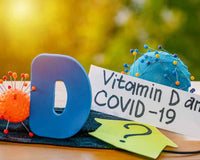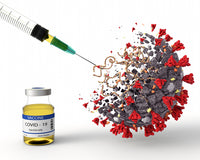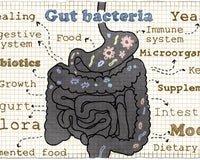Zinc's role in life can't be understated. In fact, the element appears to be a crucial component of the meeting between sperm and egg.
A December 2014 video, published alongside a study in the journal Nature Chemistry, shows the fireworks of fertilization as an egg releases "sparks" of zinc after enveloping a sperm.
Researchers are still exploring this phenomenon, but they have discovered that the egg cannot develop without the zinc eruptions.
The zinc fireworks could have real-world applications for women dealing with infertility.

Fun fact "Oysters have the highest amount of the mineral zinc per serving in any food. Zinc, a substance that increases human vitality and energy
According to the US Department of Agriculture’s FoodData Central, one raw Pacific oyster contains 18.9 mg zinc, or 172% daily value for adults"
Zinc and Your Health
Zinc is an essential mineral that is naturally present in some foods, added to others, and available as a dietary supplement.
This beneficial mineral, Zinc is also found in many cold lozenges and some over-the-counter drugs sold as cold remedies.
Intimately involved in immune responses
When it comes to improving immune health, many people think of zinc immediately.
Although zinc does not “work” alone, it is indeed vital for supporting virtually every stage of an immune response when our bodies encounter pathogens (e.g., virus and bacteria) or dangers (e.g., tissue damage caused by oxidative stress or toxins). For example:
- Zinc helps maintain the integrity of the physical and biochemical barriers such as skin and mucous membranes (mucosal cells) in the respiratory and gastrointestinal tract to block pathogens’ entry.
- Zinc supports differentiation and proliferation of innate immune cells and enhances their functioning, such as monocyte phagocytic capacity and natural killer cell cytotoxic activity.
- Zinc has antioxidant properties that protect against reactive oxygen species (ROS).
- Zinc is important for the development and activation of T lymphocytes supporting adaptive immune responses.
- Zinc is involved in the production of the antibody IgG.
- Zinc supports the production of antimicrobial substances such as interferon-gamma (IFNγ) that deter microbes’ growth.

Zinc deficiency can be corrected by eating foods rich in zinc or via supplementation of zinc. In a cell model of an inflammatory condition, zinc treatment inhibited NLRP3 inflammasome activation.
It was achieved via activation of the Nrf2 antioxidant pathway and reduced production of reactive oxygen species.
Zinc and Age-related Macular Degeneration
Researchers have suggested that both zinc and antioxidants delay the progression of age-related macular degeneration (AMD) and vision loss, possibly by preventing cellular damage in the retina.
In a population-based cohort study in the Netherlands, high dietary intake of zinc and beta carotene, vitamin C, and vitamin E was associated with reduced risk of AMD in elderly subjects.
However, the authors of a systematic review and meta-analysis published in 2007 concluded that zinc is not effective for the primary prevention of early AMD, although zinc might reduce the risk of progression to advanced AMD.
Zinc supplementation alone significantly reduced the risk of developing advanced AMD in subjects at higher risk but not in the total study population.
Visual acuity loss was not significantly affected by zinc supplementation alone.
A follow-up AREDS2 study confirmed the value of this supplement in reducing AMD progression over a median follow-up period of 5 years.

AREDS2 found that a formulation providing 25 mg zinc (about one-third the amount in the original formulation) provided the same protective effect against developing advanced AMD.
However, because AREDS2 had fewer participants than the original AREDS study, fewer than half took the lower zinc formula, the researchers view this finding as preliminary.
They recommend the use of an AREDS formulation providing 80 mg zinc.
Two other small clinical trials evaluated the effects of supplementation with 200 mg zinc sulfate (providing 45 mg zinc) for 2 years in subjects with drusen or macular degeneration.
Zinc supplementation significantly reduced visual acuity loss in one study but did not affect the other.
A Cochrane review concluded that the evidence supporting the use of antioxidant vitamins and zinc for AMD comes primarily from the AREDS study.
Individuals who have or are developing AMD should talk to their healthcare provider about taking a zinc-containing AREDS supplement.
Zinc Interactions with Iron and Copper
Iron-deficiency anemia is a serious worldwide public health problem.
Iron fortification programs have been credited with improving the iron status of millions of women, infants, and children.
Fortification of foods with iron does not significantly affect zinc absorption. However, large amounts of supplemental iron (greater than 25 mg) might decrease zinc absorption.
Taking iron supplements between meals helps reduce its effect on zinc absorption.
High zinc intakes can inhibit copper absorption, sometimes producing copper deficiency and associated anemia.
For this reason, dietary supplement formulations containing high levels of zinc, such as the one used in the AREDS study, sometimes contain copper.
Deficiency Negatively Impacting Health
According to the World Health Organization, even a mild zinc deficiency is relatively common at approximately 31% worldwide, contributing to a weaker cell-mediated immune response.
In populations at risk of zinc deficiency, preventive zinc supplementation has been shown to improve pregnancy outcomes, reduce death in children from infectious illnesses such as diarrhea and acute lower respiratory infections, lowers all-cause mortality, and increases linear growth and weight gain among infants and young children.

Zinc supplementation during episodes of diarrhea reduced duration and severity. Studies using oral zinc supplementation repeatedly show a significant reduction in infection duration, with most of the research exploring the effects of zinc on the common cold.
The recommended dietary allowance (RDA) for men is 11mg/day, and women are 8mg/day.4 Unfortunately, dietary intake of zinc in the US has been inadequate.
Older adults, vegetarians, and people with chronic inflammatory conditions or renal disease are especially at risk of deficiency.
Zinc deficiency has been linked to impaired immune functions.
Its clinical impact can be detrimental, such as increased susceptibility to infections, including viral infections of the respiratory tract, increased diarrhea and pneumonia, impaired wound healing, and increased risk of inflammatory and autoimmune disorders.
Zinc Improves Various Health Conditions
There is strong clinical evidence demonstrating the benefits of zinc supplementation on immune health. Here are only some of the examples:
- Zinc supplementation at 30 mg/day for 3 months effectively increased serum zinc concentration in the elderly (65 y/o or older living in a nursing homes), which improved T cell proliferation.
- Zinc supplementation at 45 mg/day for 1 year significantly reduced infection incidence, levels of inflammatory cytokines, and markers of oxidative stress in elderly subjects.
- In a meta-analysis involving common cold patients, zinc (as lozenges) use led to a reduction in common cold duration by nearly 3 days.
- Zinc supplementation reduced otitis media incidence (inflammation of the middle ear caused by infection) in young children without causing severe adverse events.
- A meta-analysis demonstrated that zinc supplementation significantly reduced the frequency and severity of diarrhea and respiratory tract infections in children.
Zinc and Dietary supplements
Supplements contain several forms of zinc, including zinc gluconate, zinc sulfate, and zinc acetate. The percentage of elemental zinc varies by form. For example, approximately 23% of zinc sulfate consists of essential zinc; thus, 220 mg of zinc sulfate contains 50 mg of elemental zinc.
The fundamental zinc content appears in the Supplement Facts panel on the supplement container. Research has not determined whether differences exist among forms of zinc in absorption, bioavailability, or tolerability.
In addition to standard tablets and capsules, some zinc-containing cold lozenges are labeled as dietary supplements.
Other Zinc Sources
Zinc is present in several products, including some labeled as homeopathic medications, sold over the counter to treat and prevent colds.
Numerous case reports of anosmia (loss of the sense of smell), in some cases long-lasting or permanent, have been associated with the use of zinc-containing nasal gels or sprays.
In June 2009, the FDA warned consumers to stop using three zinc-containing intranasal products because they might cause anosmia.
The manufacturer recalled these products from the marketplace.
Currently, these safety concerns are not associated with cold lozenges containing zinc.
Did You Know?
-
Zinc makes up 70 milligrams of every kilogram of the Earth's crust, on average, according to the IZA.
-
There's zinc in your pocket: Pennies are 97.5 percent zinc and only 2.5 percent, copper.
-
Most people get plenty of zinc through their food. But zinc supplements may be useful for women who struggle with depression and irritability before their periods. A 2013 study found that supplementing at least 15 milligrams a day of zinc was associated with a lower risk of premenstrual syndrome, or PMS.

Zinc Benefits Summary
Immune support is an important aspect of patient care to address year-round, but perhaps especially during cold and flu season.
Lifestyle strategies, including proper handwashing and rest, as well as personalized supplement plans, offer safe and effective ways to support a healthy immune response and reduce the risk of acute illnesses.
There is very strong evidence supporting zinc’s role in immune functions, but zinc benefits go beyond supporting immune health.
Many studies have demonstrated zinc’s role in managing type 2 diabetes, age-related macular degeneration, depression, and more.
Therefore, it is important to maintain an adequate dietary intake of zinc.
So next time you see oysters in a restaurant (after measures of social distancing have been lifted, of course), be sure to thank them. Or better yet, eat them!












